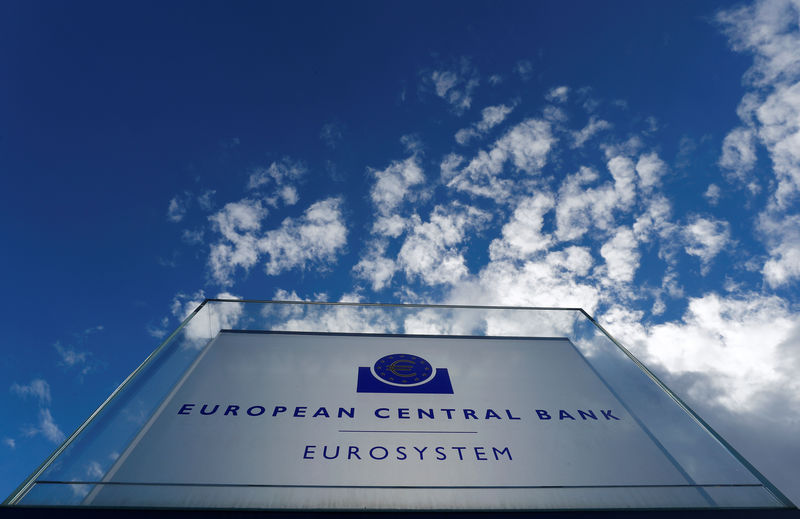FRANKFURT (Reuters) - European Central Bank policymakers debated the risk that ultra-low interest rates pose to banks when they met in March and decided to push back any rate hike to next year, the accounts of the meeting showed.
Fearing a sharp slowdown in economic growth, the ECB reversed course last month, delaying a planned interest rate hike until 2020 and giving banks fresh access to ultra cheap central bank funding. [L5N20U1N5]
"Concerns were voiced that over time, the effects of persistently low rates could depress banks' interest margins and profitability, with negative effects on banks intermediation and financial stability in the longer run," the ECB said in the accounts of the meeting on Thursday.
Even as the bank is still ironing out the details of its new bank loan scheme, ECB President Mario Draghi had already raised the prospect of even more stimulus, saying that a rate hike could be delayed even further and there could be help for banks to mitigate the side effects of negative interest rates.
And sources told Reuters ECB staff was studying a tiered deposit rate to give banks some relief from having to pay a punitive charge for parking their cash at the central bank overnight.
While such a system would suggest that rates would stay low for even longer, the accounts indicated that policymakers were already expecting policy normalization to be drawn out.
Indeed, the rate-setters argued that inflation will now take even longer to rise to the ECB's target given widespread uncertainty and growth projections were still at risk of being "optimistic", even after being cut several times already.
"Weakness in growth was seen as being longer-lasting than had previously been expected," the ECB said. "Projections implied a slower adjustment of inflation to the ECB's price stability objective.
Still, calls by a "number" of policymakers to push the timing of the first rate hike to after the first quarter of 2020 were rejected, with others warning about the risk of committing to policy too far into the future.
The ECB's problem is that economic growth is slowing sharply with no sign yet of a rebound, threatening to unwind years of unprecedented monetary stimulus.
The slowdown, exacerbated by Brexit uncertainty, could also expose the vulnerability of the ECB as it has exhausted much of its firepower and its few remaining tools are mostly untested and lack potency in tackling economic weakness importer from abroad.

Policymakers argued that growth would not necessarily revert to potential over the longer term and uncertainty might be more persistent than expected.